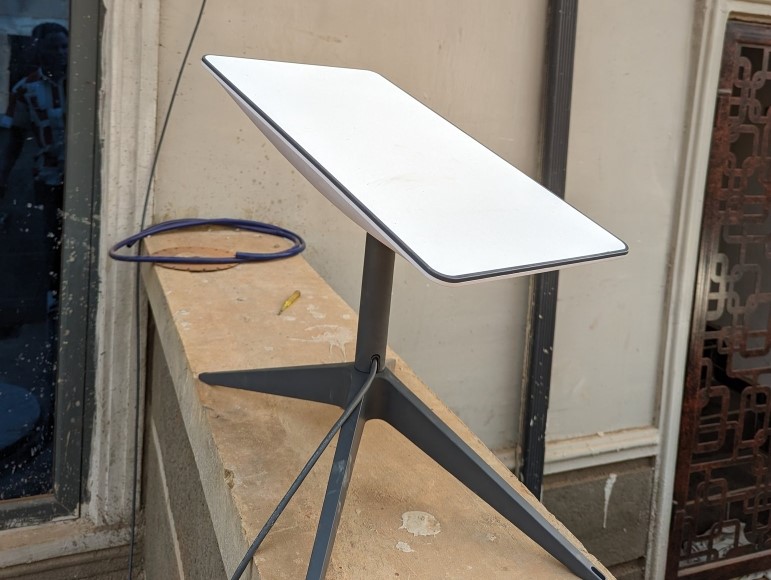- Members of Zambia’s parliament will each receive a Starlink kit for their respective constituencies. This update comes two months after the Southern African country saw the launch of the Internet satellite service.
- According to the Minister of Technology and Science, Felix Chipota Mutati, the government will bear the financial responsibilities for the country’s 150 constituencies in the first year.
- The electronic government division, Smart Zambia, will oversee the distribution process, ensuring that every constituency receives the necessary support for success in the digital era.
Mutati stated that this development will improve digitalisation and encourage proper relationships between members of parliament and their constituents through access to critical online services.
He also said the Internet satellite service provider can connect over 300 devices simultaneously. However, a Starlink router only supports up to 128 devices.
The viability of this strategy is one of the many concerns that this development has brought up. In this context, the monthly subscription fee for Starlink is ZMK 771 ($36), and the hardware costs ZMK 10,744 ($505).
Zambia remains one of the poorest countries in the world, with a poverty rate of 54.4%, occupying the 16th spot globally. About 64% of people live on less than $2 per day, while most who earn more struggle to make ends meet. On this basis, Zambians’ ability to afford Starlink for their households is implausible.
The Minister stated that each member of parliament will receive a Starlink kit to better serve their constituency. However, serving the 4.3 million internet users that can only support about 128 devices is challenging.
Mutati also included that the government will be responsible for financial responsibility for the first year of usage. This also raises the question of how sustainable the approach is.
Zambia, a country of slightly over 20 million people, has experienced inconsistent Internet service over the years due to a lack of necessary infrastructure, particularly in rural areas where most people live.
There is a digital divide between urban and rural communities due to the high costs of constructing and maintaining necessary infrastructure, such as fibre optic cables and telecommunications towers, discouraging Internet service providers (ISPs) from investing in these areas.
Due to power shortages brought on by low water levels at a hydroelectric plant on the Kariba Dam after a drought, telecommunications service was interrupted from December 2022 to February 2023.
MTN, in collaboration with the Chinese telecommunications company Huawei, launched the country’s first fifth-generation (5G) technology for mobile network service in six major cities in November 2022. According to the Zambia Information and Communications Technology Authority (ZICTA), the country has since seen a 56.9% penetration rate with 11.1 million internet users.
Contrary to this, DataReportal’s Digital 2023 report identifies an Internet penetration rate of 21.2%, representing 4.3 million Internet users.











